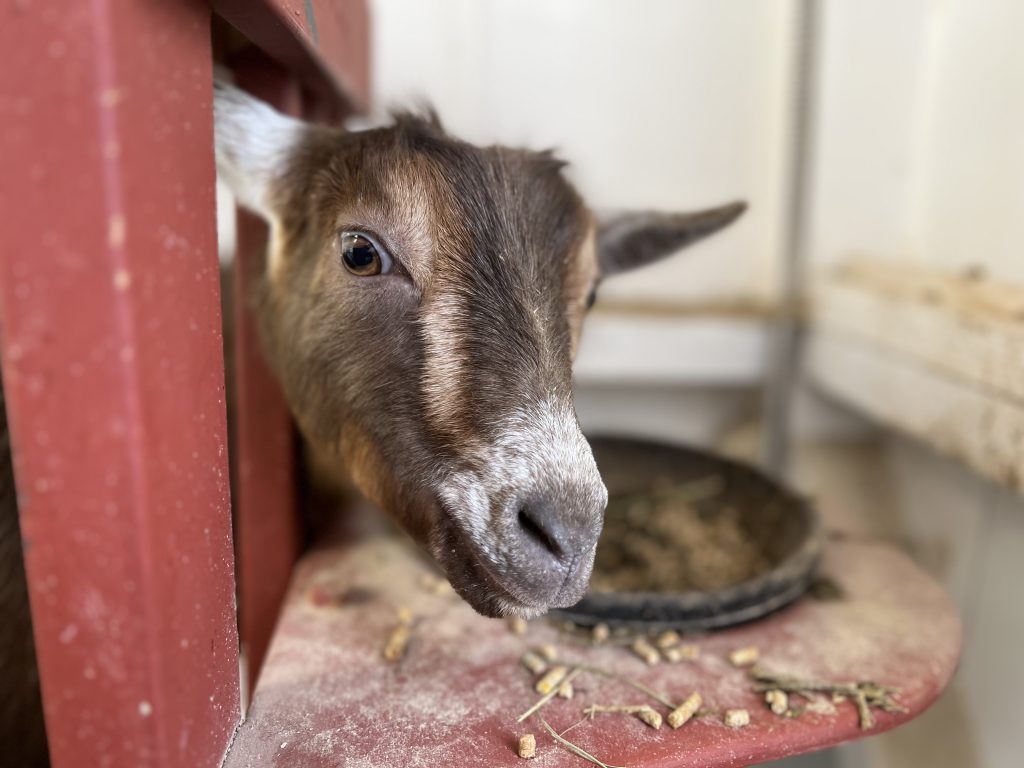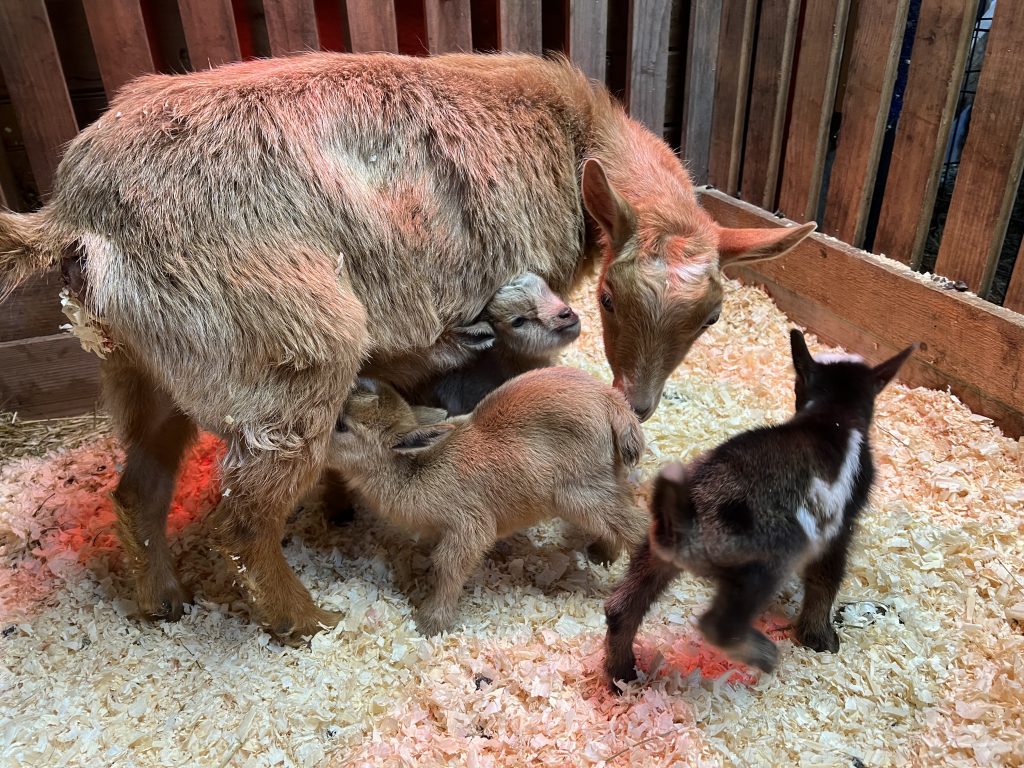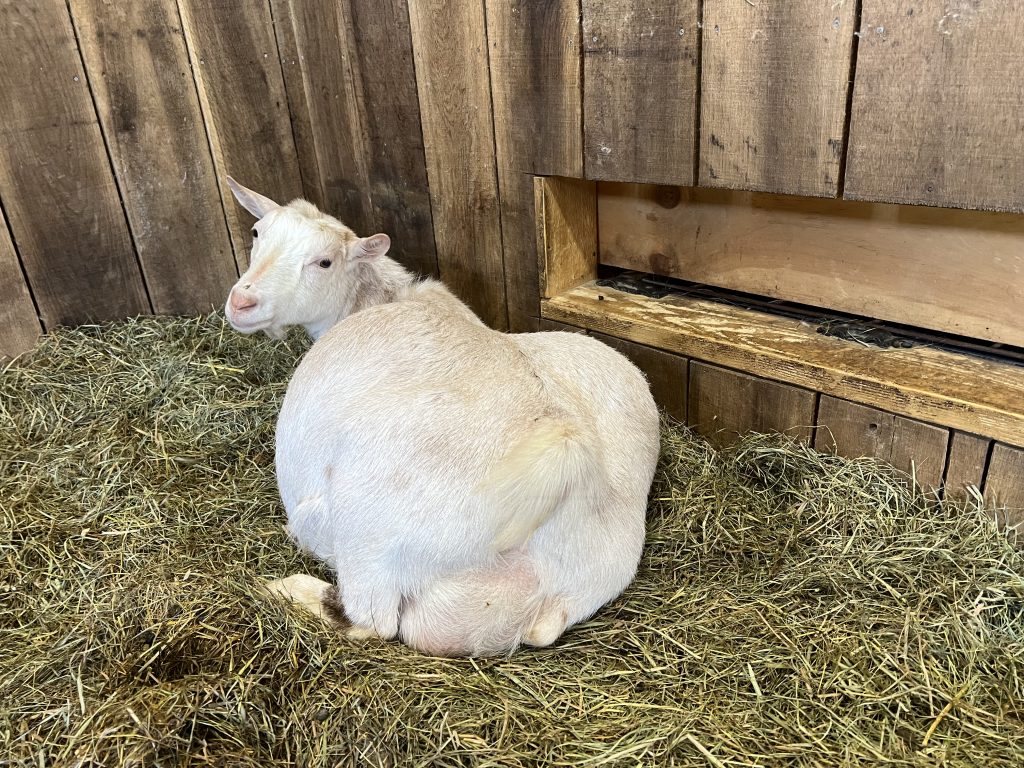The Importance of Proper Nutrition for Preventing Toxemia and Ketosis in Pregnant Goats
Pregnancy in goats is a critical period that requires careful nutritional management to ensure the health of both the doe and her developing kids. Proper nutrition plays a pivotal role in preventing serious metabolic disorders such as pregnancy toxemia and ketosis, which can have devastating consequences if left untreated. In this guide, we’ll delve into the differences between these two conditions, their causes, and how proper nutrition, including Baby Mama Treats and Belly Buddy Treats from bitemegoattreats.com, can help prevent them.
Understanding Pregnancy Toxemia and Ketosis
What is Pregnancy Toxemia?
Pregnancy toxemia, also known as twin lamb disease in sheep, is a condition that occurs when a pregnant goat’s energy demands exceed her dietary intake. This typically happens in the final trimester when fetal growth is at its peak, and the doe may not consume enough feed to meet her needs. The body begins to break down fat reserves for energy, leading to the production of ketones. Excessive ketones in the bloodstream result in toxemia, a life-threatening metabolic disorder.
Signs of Pregnancy Toxemia:
- Loss of appetite
- Depression or lethargy
- Neurological symptoms such as tremors or disorientation
- Difficulty standing or walking
What is Ketosis?
Ketosis is a broader term that refers to the accumulation of ketones in the bloodstream. While pregnancy toxemia is a specific type of ketosis affecting pregnant does, ketosis can also occur in lactating goats when energy demands for milk production surpass dietary intake.
Signs of Ketosis:
- Sweet-smelling breath (due to ketones)
- Weight loss despite adequate feed
- Decreased milk production in lactating goats
Both conditions stem from energy imbalances but affect the goat at different life stages and present slightly varied symptoms.
The Role of Proper Nutrition in Prevention
Preventing pregnancy toxemia and ketosis starts with meeting the nutritional needs of your goats, especially during late pregnancy. A well-balanced diet provides the energy and nutrients necessary to support the doe’s body and her growing kids, minimizing the risk of metabolic disorders.
Key Nutritional Components:
- High-Quality Forage:
- Alfalfa hay is a rich source of protein and calcium, essential for fetal development and lactation preparation. If alfalfa hay is not available, you can also supplement with pre chopped, bagged alfalfa hay products such as Chaffhaye or Alfahay. Make sure they have access to good-quality second-cut hay at all times.
- Concentrated Energy Sources:
- Grain supplements provide the extra energy needed during late pregnancy. These should be introduced gradually to avoid digestive upset. Increase grain consumption during the last month of gestation.
- Minerals and Vitamins:
- Provide a free-choice goat mineral mix to ensure adequate calcium, phosphorus, selenium, and other essential nutrients.
- Fresh Water:
- Hydration supports overall health and metabolic processes, especially during gestation. During the cold winter months while goats are pregnant, offer them warm water to encourage them to drink. On particularly cold days, some molasses can be added to warm buckets to help encourage hydration.
- Supplemental Treats:
- Adding Baby Mama Treats and Belly Buddy Treats to their diet can offer targeted nutritional support in a palatable form.

Grain can help your pregnant does get the calories they need
How Baby Mama Treats and Belly Buddy Treats Help
At bitemegoattreats.com, we’ve developed treats specifically designed to meet the needs of pregnant goats:
- Baby Mama Treats: These treats are rich in energy-dense ingredients to help prevent pregnancy toxemia by ensuring does receive the calories they need during late gestation. They’re also fortified with essential vitamins to support fetal development.
- Belly Buddy Treats: These treats are formulated with calcium, probiotics, and trace minerals to promote overall health and prevent milk fever. The probiotics improve gut health, aiding in better nutrient absorption.
Both treats are crafted from natural, goat-safe ingredients, making them an easy and enjoyable way to provide supplemental nutrition.
Tips for Preventing Toxemia and Ketosis
- Monitor Body Condition:
- Regularly check your doe’s weight and adjust her diet accordingly. Both underweight and overweight does are at higher risk for metabolic disorders.
- Gradual Dietary Changes:
- Slowly introduce grain and supplements to avoid disrupting the rumen’s delicate balance.
- Frequent Feeding:
- Offer smaller, more frequent meals to encourage consistent feed intake, especially as the growing kids limit rumen capacity.
- Provide Supplemental Treats:
- Incorporate Baby Mama Treats and Belly Buddy Treats into their daily regimen to address specific nutritional gaps.
- Watch for Early Signs:
- Be vigilant for symptoms of pregnancy toxemia or ketosis, such as changes in appetite or behavior, and consult a veterinarian if you suspect an issue. You can test for ketosis with over-the-counter urine strips, or a livestock-specific ketone monitor.
- Regular Veterinary Checkups:
- Routine health checks can help identify and address potential issues before they become severe.

Pregnancy toxemia and ketosis are preventable conditions that can have serious consequences for your goats if left unmanaged. By providing proper nutrition and closely monitoring your does during pregnancy, you can reduce the risk of these metabolic disorders and ensure a healthy, successful kidding season. Incorporating Baby Mama Treats and Belly Buddy Treats from bitemegoattreats.com into your feeding program is a simple yet effective way to give your does the extra support they need.
Take proactive steps to safeguard your herd’s health and well-being. Start prioritizing nutrition today to set your does and their kids up for success!


Leave a Reply